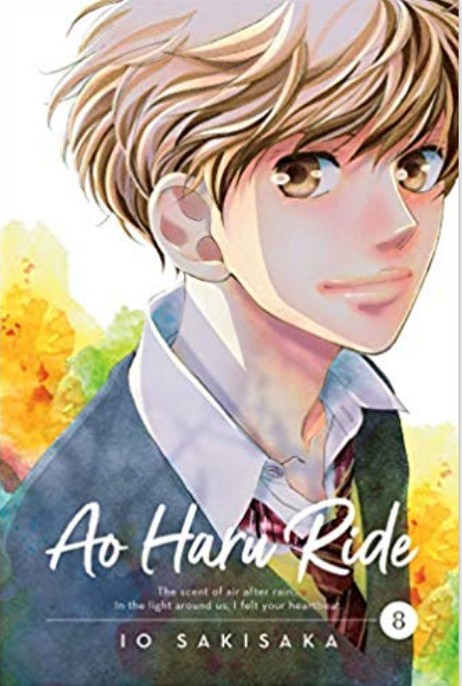Ao Haru Ride Volume 13 by Io Sakisaka
I have this issue sometimes when I really like a series and the final volume comes out, I tend to procrastinate reading it a little bit just because I don’t want the series to end. So the last volume of Ao Haru Ride has been sitting in my house for a couple weeks now before I decided to read it. This was a very satisfying concluding volume that showed the main characters settled into a relationship in a very adorable way that contrasts nicely with all the sadness and difficulty that they faced along the way.
Futuba and Kou are now firmly a couple and dealing with new issues, such as her wanting more reassurance about his feelings for her, and figuring out that while he might not verbalize his feelings as much he cares for her a great deal. As a couple with an established relationship they can even help out with Kominato’s extremely transparent plan to confess to Murao by agreeing to go on a double date that just coincidentally is happening on Valentine’s Day. While Futuba and Kou are plenty adorable with each other, the pain of the past isn’t forgotten, as seen in a misunderstanding when Futuba can’t find Kou at on the first day of school and is frightened that he’s disappeared again the way he did in the past. There were enough chapters showing Kou and Futuba in their new lives as a couple that felt like they were settled down with each other but looking forward to the future in the best way possible. The volume concluded with a surprise Strobe Edge bonus story, and it was a real treat to see those characters again. Ao Haru Ride dealt with teen romance in a complex way, layered with themes of loss and nostalgia that made it much more meaningful than the typical shoujo romance.





Recent Comments